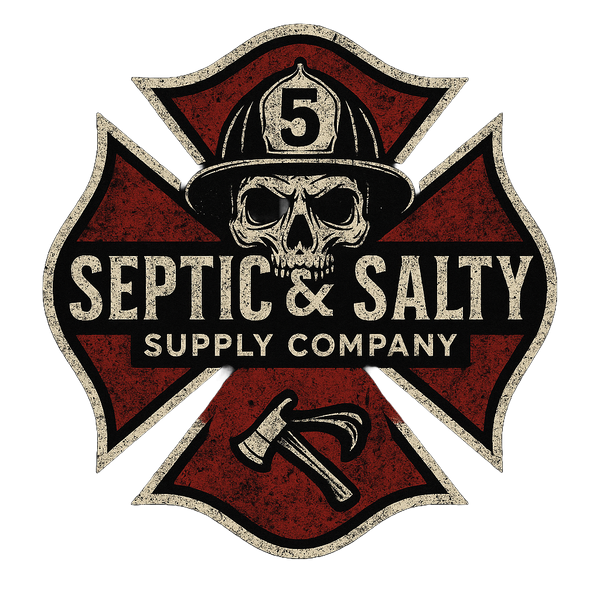
A Healthy Fire House: Probie Edition
Share
“Leadership is not about being in charge. It’s about taking care of those in your charge.”
— Simon Sinek
In the heart of every firehouse, the probationary firefighter stands as a symbol of potential and growth, embodying the next generation of firefighting excellence.These eager rookies, often seen as the most anxious yet determined members of the team, require more than just patience; they need structured guidance and robust firehouse training. Far from being just another set of hands, the probie represents a fresh opportunity to instill core values and a strong work ethic that align with firefighter standards. Mentoring firefighters is not merely about familiarizing them with equipment, but nurturing a mindset that values diligence, teamwork, and integrity. As we delve into the dynamics of effectively training probies, we uncover the critical role of leadership in shaping the future of firehouse culture.
The Myth of The Self-Taught Probie
Let's bust a common misconception: the idea that probationary firefighters can simply teach themselves everything they need to know. This myth not only undermines the value of structured training but also puts unnecessary pressure on rookies.
Breaking Down the Fantasy
The fantasy of the self-taught probie often looks like this: a rookie spending countless hours in the bay, magically absorbing knowledge from the trucks and equipment. But let's get real for a second.
Memorizing hose loads through osmosis? Not going to happen. Knowing every compartment like it's tattooed on their arm? Unlikely. Understanding unspoken policies based on vibes? That's a recipe for disaster.
Probationary firefighter training isn't about leaving rookies to fend for themselves. It's about providing a solid foundation through structured learning and hands-on experience.
Why Guidance Is Crucial
Guidance isn't just helpful for probies—it's absolutely essential. Here's why:
First, rookies don't know what they don't know. Without proper direction, they might focus on the wrong areas or develop bad habits that are hard to break later.
Secondly, firefighting is a team sport. Learning in isolation doesn't prepare probies for the collaborative nature of the job. They need to understand how their role fits into the bigger picture.
Lastly, guidance helps instill the right mindset from day one. It's not just about skills; it's about cultivating the right attitude, work ethic, and values that make a great firefighter.
Complacency's Hidden Dangers
Complacency in the firehouse is like a slow-burning fire—it might not seem dangerous at first, but it can quickly spread and cause serious damage. Let's explore how this attitude affects our probies and the overall firehouse culture.
Impact on Firehouse Culture
Complacency doesn't just affect individual performance; it seeps into the very fabric of firehouse culture. When senior firefighters adopt a "checked-out" mentality, it sends a dangerous message to probies.
This attitude tells rookies that it's okay to just do the bare minimum. It suggests that caring less as time goes on is normal. Worst of all, it implies that skipping training for leisure activities is acceptable.
Remember, probies are like sponges. They absorb not just knowledge, but attitudes and behaviors. If we let complacency reign, we're setting up the next generation of firefighters for failure.
Training Beyond the Tools
Training a probie isn't just about teaching them how to use equipment. It's about shaping their entire approach to the job. Here's what we need to focus on:
- Work ethic: Instilling a sense of pride in doing the job right, every time.
- Mindset: Cultivating a growth mindset that values continuous learning and improvement.
- Standards: Setting and maintaining high standards for performance and conduct.
Every interaction with a probie is a teaching moment. Whether we intend to or not, we're constantly showing them what's acceptable in our firehouse.
If we want sharp, dependable, fire-ready rookies, we need to lead by example. That means staying engaged, continuously improving our own skills, and maintaining high standards for ourselves and our team.
Leading to Create Elite Rookies
Creating elite rookies doesn't happen by chance. It requires intentional leadership and a commitment to excellence. Let's explore how we can lead effectively to shape the next generation of firefighters.
Mentoring Moments that Matter
Mentorship in the fire service isn't about grand gestures or formal programs. It's about seizing everyday moments to impart knowledge and wisdom.
These mentoring moments can happen anywhere: during equipment checks, after a call, or even while doing station chores. The key is to be present and engaged, ready to share insights or offer guidance.
For example, while cleaning the truck, you might explain the purpose of each tool and share a story about how you've used it in the field. These real-world connections help probies understand not just the "what" but the "why" of their training.
Remember, effective mentoring is a two-way street. Encourage probies to ask questions and share their thoughts. This dialogue helps them develop critical thinking skills and builds their confidence.
Holding the Line on Standards
Maintaining high standards is crucial for developing elite rookies. It's not about being tough for the sake of it, but about setting clear expectations and consistently enforcing them.
Here's how to effectively hold the line:
- Clearly communicate expectations from day one
- Provide regular feedback, both positive and constructive
- Address issues promptly and fairly
- Recognize and reward progress and excellence
Remember, the goal isn't to break probies down, but to build them up to meet the high standards of the profession. This requires a balance of firmness and support.
When probies understand that high standards are about safety and excellence, not arbitrary rules, they're more likely to embrace the challenge. By consistently upholding these standards, we create an environment where excellence becomes the norm, not the exception.
Your unhinged pals,
Septic & Salty Supply Co.
